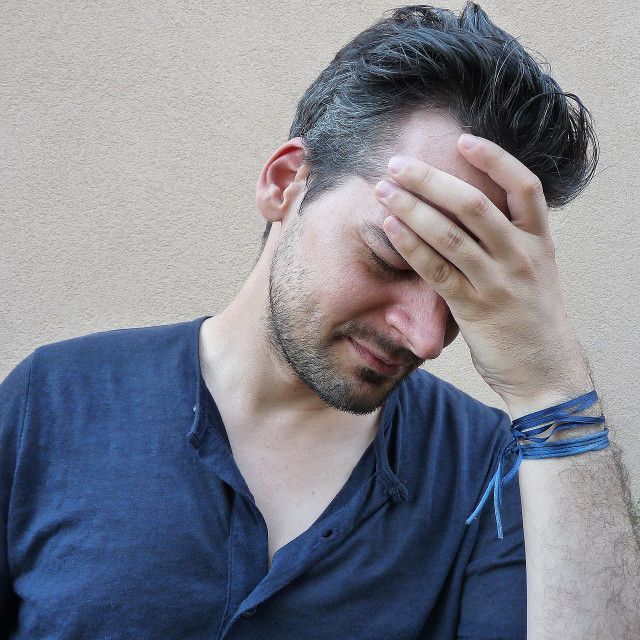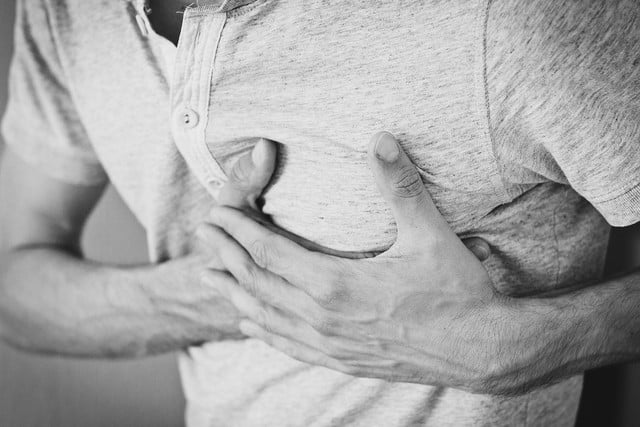
Lack of sleep has more symptoms than just fatigue. Little sleep can be very stressful in the long run and have far-reaching consequences. This is how you can prevent lack of sleep.
Most people have a bad night’s sleep or don’t feel fully recovered in the morning. However, one only speaks of chronic sleep deprivation if difficulties falling asleep and/or staying asleep or waking up early in the morning occur at least three times a week over a period of one to three months. About six percent of the population is affected.
Lack of sleep makes itself felt the next morning with some symptoms. In the long run, it can even lead to illness.
Why sleep is so important
Sufficient sleep is of crucial importance for our physical and mental health, explains the Max Planck Institute for Psychiatry. During sleep, the body goes through various sleep cycles that are important for rest and regeneration of organs, tissues and brain processes.
According to the Health Knowledge Foundation, a good night’s sleep is essential to consolidate new memory content, to recover the brain and to cleanse it of waste products. Important information is sorted during sleep and the immune system, metabolism and endocrine system are positively influenced.
A lack of sleep can therefore lead to serious symptoms and go hand in hand with great physical and mental suffering. Lack of sleep can be traced back to external or internal causes, for example insufficient sleep hygiene, physical and mental illnesses or medication. In the case of insomnia, there may also be no apparent reason for a lack of sleep.
Lack of sleep: symptoms and signs

(Photo: CC0 / Pixabay / pheee)
Lack of sleep manifests itself in a variety of symptoms. First and foremost, disturbed sleep is of course associated with fatigue, but the following symptoms are also signs of sleep deprivation, according to the Mayo Clinic and Netdoktor:
- Difficulty falling asleep at night
- waking up during the night
- Waking up too early
- You don’t feel rested
- Headache
- daytime sleepiness or sleepiness
- irritability, depression or anxiety
- Difficulty paying attention, poor concentration, reduced memory
- Increased errors or accidents
- Persistent worries about sleep
The symptoms caused by lack of sleep do not necessarily have to occur all together: they can also occur individually or in various combinations. You can fight many signs in the short term (e.g. painkillers for headaches and caffeine for tiredness). In the long run, however, you should definitely try to find the cause of the problem and fix it.
If you find yourself suffering from sleep deprivation symptoms for a long time, you should seek medical attention.
Consequences of lack of sleep

(Photo: CC0 / Pixabay / StockSnap)
Even a short-term lack of sleep not only brings with it temporary symptoms such as tiredness, but can also have serious consequences for your physical and mental health. The longer sleep deprivation lasts, the more dangerous it becomes, as a post by Quarks shows:
After 24 hours of sleep deprivation it comes to:
-
Deterioration of neurocognitive abilities: long-term memory decline, shortened attention span, lax and less thorough task processing.
-
Increased sensitivity to beeps: Difficulty distinguishing important from unimportant stimuli, similar to that seen in schizophrenic patients.
-
Impaired cognitive functions: Poor concentration, slower reactions, increased irritability, increased willingness to take risks
-
Weakened immune system: Sluggish defense against pathogens
-
Increased cravings for high-calorie food: Activation of the reward center in the brain, resulting in an increased desire for fast food
Here are the consequences of 48 hours of sleep deprivation:
-
50 percent loss of physical performance, stress reactions, increased heart rate and blood pressure
- Impaired language skills
- Increased forgetfulness
- Increased risk of microsleep, especially when driving
72 hours of sleep deprivation leads to:
- Cognitive impairment, “zombie-like” condition, hallucinations
- Possibility of anxiety, paranoia and depressed mood
You see: Your lack of sleep can also have a negative impact on the people around you, as you tend to engage in risky behavior. One study even found that pediatricians who sleep less than an hour during a 24-hour shift tend to make riskier clinical decisions.
Lack of sleep can lead to illness

(Photo: CC0 / Pixabay / Pexels)
According to the Health Knowledge Foundation, persistent lack of sleep leads to long-term health impairments and the development of diseases. These include:
- an increased risk of high blood pressure and heart attack
- weight gain
- an increased chance of developing diabetes
- Increased risk for dependencies
- promotion of dementia
In addition, prolonged lack of sleep weakens the immune system. This makes the body more susceptible to diseases such as colds, flu infections and the like. Lack of sleep can also cause you mental illness.
Preventing lack of sleep: You have these options

(Photo: CC0 / Pixabay / Hermann)
Lack of sleep can therefore have serious consequences that affect both the body and the psyche in the long term. If you notice symptoms related to sleep deprivation, it is important to take action in good time. To prevent it from happening in the first place, you should also prevent sleep deprivation as much as possible. There are various methods for doing this:
- Avoid stress or learn to deal with it better. For example, use relaxation techniques.
- Don’t drink high caffeine drinks in the evening.
-
Avoid alcoholic beverages before bed. Alcohol can also make it difficult to fall asleep or stay asleep.
- Heavy food sits in the stomach and puts a lot of strain on the digestive tract. Eat light meals in the evening.
- Integrate enough sport and exercise into your life to keep yourself fit.
-
Make your bedroom cozy and appealing to you. You should feel comfortable there.
- If you wake up at night, don’t look at your cell phone. The bright light wakes you up and prevents you from falling asleep again.
Important: If you have tried everything and are still suffering from sleep deprivation, you should seek medical advice and get professional treatment.
Read more on Techzle\.com:
- Tips for falling asleep: Practical sleeping aids
- Darken windows: Effective tips for a restful sleep
- Spring fatigue: causes and tips for more energy
Revised by Annika Reketat